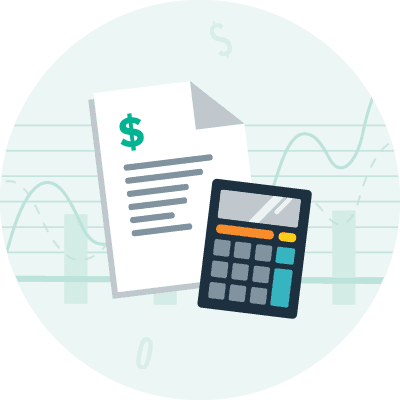What is EBIT?
REtipster does not provide tax, investment, or financial advice. Always seek the help of a licensed financial professional before taking action.
How to Calculate EBIT
EBIT is calculated by taking the revenue figure from the top of the income statement and subtracting the cost of goods sold (COGS) to determine gross profit. Operating expenses are then subtracted from gross profit to arrive at EBIT. EBIT can also be calculated by taking net income (NI) and adding in interest and taxes.
The formula can be calculated a couple of different ways:
EBIT = Revenue – COGS – Operating expenses
EBIT = Net income + interest + taxes
Why is EBIT Useful?
EBIT is a useful metric to analyze a business because it focuses on operational profitability, i.e. the company’s ability to fund operations, pay down debt, and generate a profit. By taking tax and capital structure out of the equation, an investor is better able to compare the efficiency of core operations.
For example, two similar companies in the same industry could have very different tax situations. Widget Company A operates in a state that offers generous tax cuts to manufacturers, while Widget Company B gets no such tax breaks in its state.
Company A could be less operationally efficient, but the tax cut would show up on its bottom line as profit. Company B might be more efficient, but because it has a higher tax rate, its profits are actually lower. EBIT removes the impact of taxes so an investor can more accurately compare core operations.
Similarly, some companies are in industries that are capital-intensive, which means they carry a lot of fixed assets such as equipment and real property on their books. These assets are typically debt-financed, which means higher interest payments. This is not necessarily a bad thing, because properly managed debt fuels growth and expansion.
By stripping out debt expenses, investors have a clearer picture of how two companies compare without uneven capital costs.
What is the Difference Between EBIT and NOI?
Net Operating Income (NOI) is used by real estate investors to analyze a property’s ability to generate income. It is simply the property’s revenue less operating expenses.
Expenses such as taxes, interest, depreciation, and amortization aren’t factored into NOI.
EBIT is essentially the same calculation as NOI, except depreciation and amortization are included.
Here’s what that might look like in practice:
An investor buys a fourplex for $800,000. The property generates $70,000 a year in rent and has operating expenses of $15,000 a year. Depreciation for the building and laundry facilities amounts to $4,500.
NOI for the fourplex would be $55,000 ($70,000 – $15,000)
EBIT would be $50,500 ($70,000 – $15,000 – $4,500)
What is the Difference Between EBIT and EBITDA?
While the EBIT calculations remove tax and interest payments, but leave in depreciation and amortization, EBITDA calculations strip out all of those costs. EBITDA is a less reliable metric in industries with high capital expenditures because it doesn’t account for the cost of capital necessary to sustain the business.
It’s important to note that neither EBIT or EBITDA are considered standard metrics for financial reporting according to the Generally Accepted Accounting Principles (GAAP). This is most likely because the simplistic formulas make it easy for aggressive accounting strategies to hide potential red flags.
In fact, Warren Buffett is one of the harshest critics of these metrics, especially EBITDA. He believes that companies use it to “dress up” their financial statements and notes that they can be used to cover fraud. Essentially, Buffett believes any metric that discounts the cost of capital expenditures is useless in analyzing a business.

